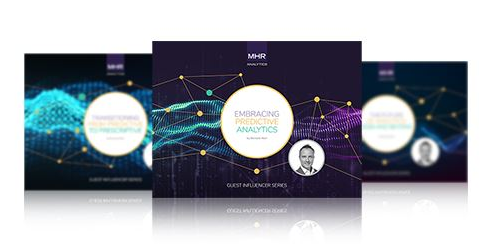Professionals will need to learn data science skills to do their jobs and help their companies thrive in the next decade, say business leaders.
Most managers believe data analytics, automation and AI will be essential for business survival in the coming years yet lack the necessary knowledge that underpins it, according to MHR Analytics research.
“We wanted to explore the levels to which organisations across all sectors are developing their data strategies, as businesses get ready to enter a new decade that promises unprecedented digital acceleration,” said Laura Timms, MHR Analytics Product Strategy Manager.
“Without the crucial component of a good data foundation, it is impossible to implement advanced analytics, automation or AI,” she said. “Despite a widespread appetite for adopting these technologies, the study showed that a better understanding of data strategy basics will be vital for companies to launch the data-driven projects they know they need to compete.”
The Data Decade survey, which polled 500 senior technology and finance managers in large UK organisations, found that:
• More than half (55%), believe data analytics will be essential for business survival in the next ten years, 53% say automation will be essential, and 42% believe AI will be essential
• A fifth (21%) of UK companies plan to implement AI yet they do not have a data strategy to support it, suggesting a better understanding will be necessary
• Skills gaps are delaying AI adoption, with 40% reporting this as a barrier to advanced analytics
• Data science skills will increase in importance, with 43% of senior professionals saying they will need to learn data science or analytics skills to progress their role in the next five years
• 43% say their role will become more strategic as traditional tasks become automated, with 91% saying their department will become more efficient due to automation.
“The research results demonstrate the positive aspirations that senior leaders have about data-driven technology, and how it will evolve and advance their roles and keep their organisations competitive in the next decade,” said Timms. “But delivering any AI-based system relies on getting the basics right with every aspect of your data quality, and on taking a step-by-step approach to data maturity.”
In the MHR Analytics report, Advancing with Analytics: Spreadsheets to AI, AI expert Bernard Marr reveals how different organisations are establishing data strategies to underpin their AI aspirations.
For example, Marr explains how Royal Shell is using AI to solve the problem facing the company’s drive to roll out electric vehicle-charging terminals.
Motorists weren’t keen to make the switch to electric vehicles while the number of terminals were so limited and while forecourt operators weren’t offering charging terminals because demand was so low.
A focused data strategy underpinning AI techniques offered a solution to this chicken and egg issue. Royal Shell’s RechargePlus programme uses AI to monitor and predict demand for charging terminals throughout the day. By better understanding customer charging needs, power can be supplied more efficiently – which, in turn, saves motorists money and will potentially encourage more motorists to make the switch to electric cars.
More information about progressing along the data journey is available via the MHR Analytics data maturity quiz.
The survey of 500 UK finance and technology professionals employed by large UK companies was conducted by Censuswide on behalf of MHR Analytics in August 2019.

